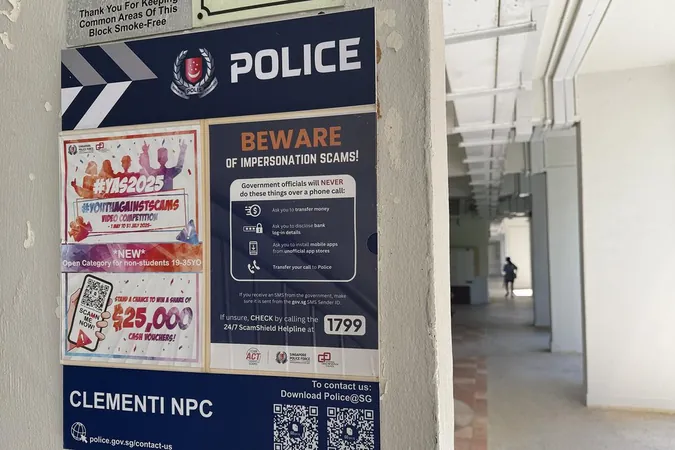
Heart Scans Post-Stenting: Are They Really Necessary?
2025-08-31
Author: Li
New Study Questions Routine Heart Scans After Stenting
In a groundbreaking study presented at the ESC Congress 2025, researchers found that routine coronary computed tomography (CCT) scans may not be essential for patients who have undergone stenting for left main coronary artery disease. The findings could reshape how we approach monitoring these high-risk individuals.
The PULSE Trial: A Closer Look
The PULSE trial was designed to determine if regular heart scans could help detect complications and prevent future blockages in patients treated with percutaneous coronary intervention (PCI). Despite anticipation, the results showed no significant benefits for patients who received CCT follow-ups compared to those evaluated based on symptoms alone.
Key Findings of the Research
Over an 18-month follow-up, 11.9% of the patients who underwent CCT experienced serious health events compared to 12.5% in the symptom-based group—a difference that wasn't statistically significant. However, the study did uncover a striking finding: the risk of spontaneous myocardial infarction (heart attacks) was significantly lower in the CCT group (0.9% vs. 4.9%).
What This Means for Patients
Despite the lack of overall benefit, this suggests that CCT may be valuable for select high-risk patients—providing a glimpse of its potential as a monitoring tool. Lead researcher Dr. Ovidio De Filippo emphasized the need for further investigation into its use, particularly for those with complex coronary artery anatomies.
A Changing Landscape in Cardiovascular Care
These findings come amidst advances in stenting technology and pharmacological treatments, which have made PCI a viable alternative to coronary artery bypass grafting. While complications like stent restenosis remain a concern, identifying effective surveillance strategies is crucial.
Conclusion: Rethinking Surveillance Strategies
The dismissal of routine CCT follow-ups may provoke a reevaluation of how healthcare professionals approach post-stenting care. As the medical community weighs the benefits against risks and costs, emphasizing personalized medicine could lead to better outcomes for patients battling coronary artery diseases.



 Brasil (PT)
Brasil (PT)
 Canada (EN)
Canada (EN)
 Chile (ES)
Chile (ES)
 Česko (CS)
Česko (CS)
 대한민국 (KO)
대한민국 (KO)
 España (ES)
España (ES)
 France (FR)
France (FR)
 Hong Kong (EN)
Hong Kong (EN)
 Italia (IT)
Italia (IT)
 日本 (JA)
日本 (JA)
 Magyarország (HU)
Magyarország (HU)
 Norge (NO)
Norge (NO)
 Polska (PL)
Polska (PL)
 Schweiz (DE)
Schweiz (DE)
 Singapore (EN)
Singapore (EN)
 Sverige (SV)
Sverige (SV)
 Suomi (FI)
Suomi (FI)
 Türkiye (TR)
Türkiye (TR)
 الإمارات العربية المتحدة (AR)
الإمارات العربية المتحدة (AR)